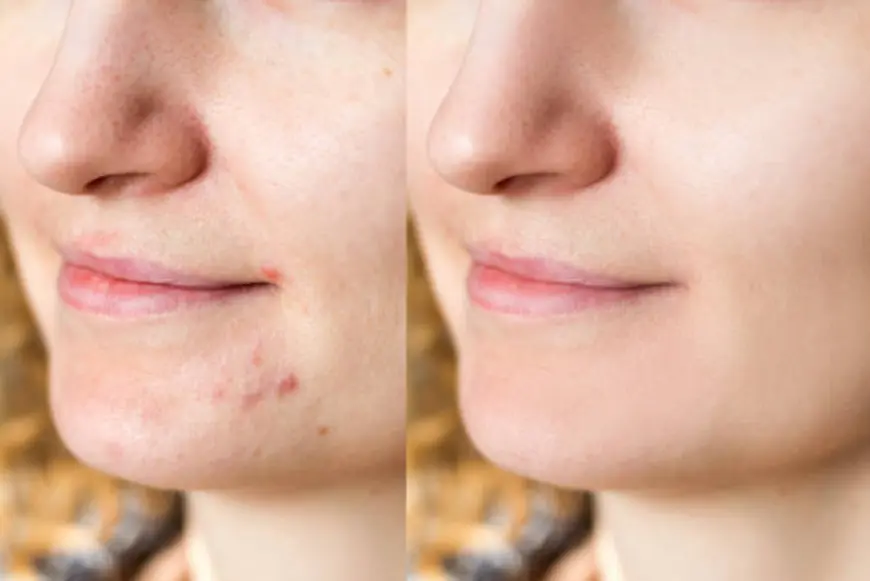How to Treat Acne While Using Retinol or Other Actives
Best Acne Treatment in Dubai UAE & Abu Dhabi can be done with lasers, injections, light therapy, and chemical peels at the Royal Clinic. Call now to make an appointment.

Acne can be challenging to manage, and adding retinol or other active ingredients to your skincare routine can sometimes cause irritation or make matters worse before they get better. However, with the right approach, you can use these powerful ingredients while keeping breakouts under control. In this guide, we’ll explore how to treat acne effectively while incorporating retinol or other activities into your routine.
Understanding Retinol and Other Actives:
Before diving into Acne Treatment Dubai, it’s important to understand what retinol and other active ingredients do for your skin:
-
Retinol: A derivative of vitamin A, retinol helps increase cell turnover, unclog pores, and stimulate collagen production. However, it can cause dryness and irritation, especially for beginners.
-
Salicylic Acid: A beta-hydroxy acid (BHA) that exfoliates the skin, penetrates deep into the pores, and helps prevent breakouts.
-
Benzoyl Peroxide: An antibacterial ingredient that kills acne-causing bacteria and reduces inflammation.
-
Niacinamide: A form of vitamin B3 that helps regulate oil production, reduce redness, and strengthen the skin barrier.
-
Hyaluronic Acid: A hydrating ingredient that counteracts the dryness caused by retinol and other actives.
Tips for Managing Acne While Using Retinol or Other Actives:
1. Start Slowly to Avoid Irritation:
If you're new to retinol or other actives, introduce them gradually. Using them too frequently from the start can lead to redness, peeling, and breakouts. Begin with:
-
Retinol: Use it 2-3 times a week and slowly increase frequency as your skin builds tolerance.
-
Salicylic Acid: Can be used daily in lower concentrations, but should be monitored for excessive dryness.
-
Benzoyl Peroxide: Best used as a spot treatment or in lower concentrations (2.5%-5%) to minimize irritation.
2. Keep Your Skin Hydrated:
Hydration is crucial when using potent actives like retinol. Dehydrated skin can overproduce oil, leading to more breakouts. To maintain hydration:
-
Use a gentle cleanser that doesn’t strip your skin.
-
Apply hyaluronic acid or a lightweight, non-comedogenic moisturizer to keep your skin balanced.
-
Drink plenty of water to support skin hydration from within.
3. Don’t Overload Your Routine:
It may be tempting to use multiple actives at once, but overloading your skincare routine can lead to irritation and breakouts. Instead:
-
Alternate active ingredients: For example, use retinol at night and salicylic acid in the morning.
-
Avoid using benzoyl peroxide and retinol together, as they can be too harsh when combined.
-
Keep it simple: Cleanser, treatment, moisturizer, and sunscreen should be your main focus.
4. Use Sunscreen Daily:
Retinol and other actives can make your skin more sensitive to the sun, increasing the risk of sunburn and hyperpigmentation. Always apply a broad-spectrum SPF 30 or higher sunscreen in the morning to protect your skin.
5. Treat Acne Without Aggravating Sensitivity:
While treating acne, you need to be gentle with your skin. Consider these approaches:
-
Spot Treat Sparingly: Use benzoyl peroxide or salicylic acid on active breakouts instead of applying it all over.
-
Soothe with Niacinamide: This ingredient calms inflammation and works well with retinol.
-
Choose Non-Comedogenic Products: Look for makeup and skincare labeled “non-comedogenic” to avoid clogging pores.
6. Manage the “Retinol Purge”:
Retinol can cause a temporary increase in breakouts as your skin adjusts. This is known as the “retinol purge” and typically lasts 4-6 weeks. To minimize its effects:
-
Stick to your routine and avoid adding new products.
-
Keep your skin hydrated and use soothing ingredients like ceramides and centella asiatica.
-
Reduce frequency if irritation becomes severe.
7. Be Patient and Consistent:
Acne Treatment in Dubai takes time to show results. Whether using retinol, salicylic acid, or benzoyl peroxide, consistent use is key. Most treatments require at least 8-12 weeks before noticeable improvements occur.
8. Consider Professional Guidance:
If your acne persists or worsens despite using actives, consult a dermatologist. They can recommend prescription treatments like tretinoin, oral antibiotics, or hormonal therapy for more severe cases.
Sample Skincare Routine for Acne-Prone Skin Using Retinol:
Morning Routine:
-
Gentle Cleanser – Removes dirt and oil without stripping skin.
-
Niacinamide Serum – Calms redness and controls oil.
-
Lightweight Moisturizer – Hydrates and strengthens the skin barrier.
-
Sunscreen (SPF 30+) – Protects against sun damage and irritation.
Evening Routine:
-
Gentle Cleanser – Prepares skin for active ingredients.
-
Retinol (2-3 times per week) – Promotes cell turnover and treats acne.
-
Hydrating Serum (e.g., Hyaluronic Acid) – Prevents excessive dryness.
-
Moisturizer with Ceramides – Locks in hydration and reduces irritation.
Conclusion:
Using retinol and other activities while treating acne requires a balanced approach. By introducing products slowly, maintaining hydration, protecting your skin from the sun, and being patient, you can achieve clearer, healthier skin. If irritation persists, adjust your routine or seek professional advice for a personalized treatment plan. Remember, consistency is key, and with time, you will see the benefits of incorporating these powerful ingredients into your skincare routine.












